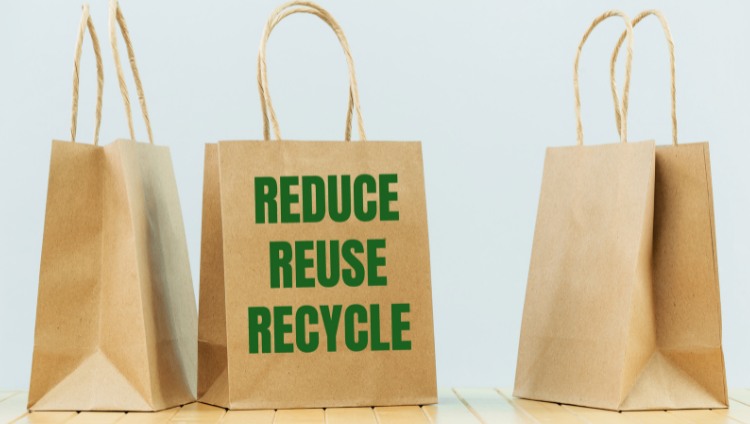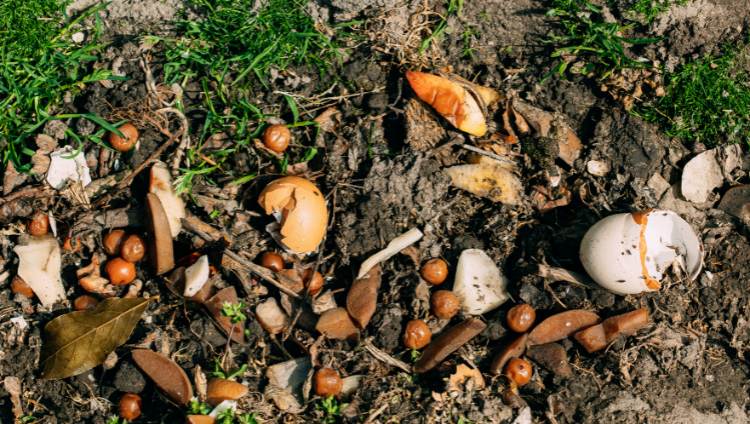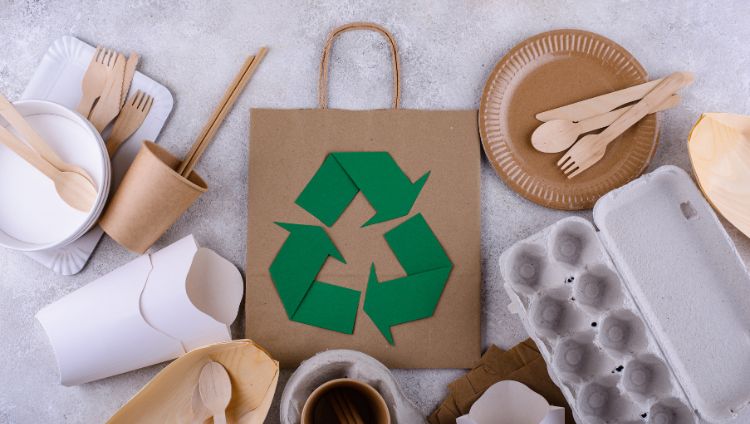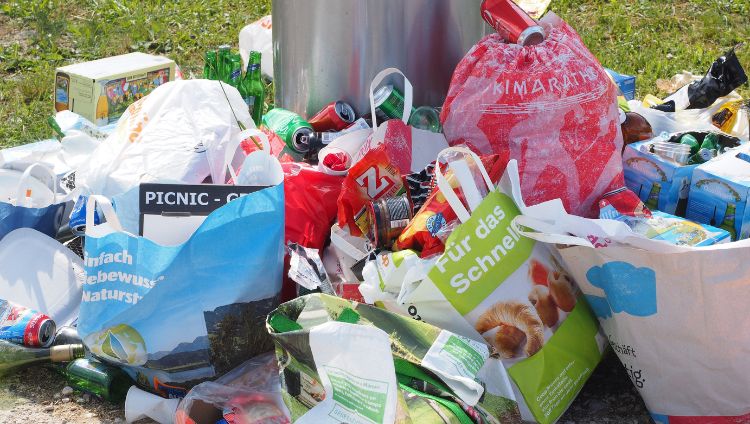How to Reduce Waste in Your Daily Life for a more sustainable lifestyle in today’s world.
By consciously making choices that prioritize waste reduction, you have the power to contribute to a healthier planet and pave the way for a more sustainable future.
In this article, we will delve into practical tips and strategies specifically designed to help you minimize waste in your everyday activities.
Get ready to learn simple yet effective ways to make a positive impact and embrace a waste-reducing lifestyle!
Embrace the three Essential Guidelines: Reduce, Reuse, and Recycle

Reduce Single-Use Plastics
The impact of single-use plastics on environmental pollution is substantial. You can play your part in minimizing their usage by embracing reusable alternatives.
Consider carrying a reusable water bottle, bringing your shopping bags, and using stainless steel or glass containers for food storage.
By actively reducing the demand for single-use plastics, you can make a positive difference in curbing waste generation.
Composting
Composting is a fantastic way to reduce waste and create nutrient-rich soil for your garden. Setting up a compost bin in your backyard is a smart move, enabling you to dispose of food scraps, grass clippings, and other organic materials.
Remember to keep meat, dairy, and greasy items out to avoid attracting pests. Regularly turning the compost will speed up its decomposition, producing high-quality compost that will give your plants the essential nutrients they need to thrive.
Related Post: How To Implement Composting At Home?

Prioritize the Use of Reusable Products
To enhance waste reduction efforts, prioritize the use of reusable products whenever feasible.
Replace paper towels with cloth towels, embrace rechargeable batteries over disposables, and opt for durable, long-lasting items instead of those with a limited lifespan.
By investing in reusable products, you actively decrease waste generation while also enjoying long-term cost savings. This situation is beneficial for both the environment and your finances.

Practice Smart Shopping
Being conscious of what you buy is essential in cutting down on waste. Before making a purchase, pause and consider if it’s genuinely needed and fits your future plans. Avoid impulse buying and prioritize quality over quantity.
When replenishing your pantry, dedicate time to meal planning to reduce food waste in the long run. Adopting these thoughtful shopping practices not only decreases unnecessary waste but also conserves resources and saves money.

Reduce Your Consumption of Paper
The phrase “Curb your use of paper, mail, receipts, magazines” serves as a clear call to action, urging people to decrease their paper consumption in daily activities.
It raises awareness about the impact of paper use and encourages exploring alternatives to cut down on waste and enhance sustainability.
By reducing paper use in areas like mail, receipts, and magazines, the phrase advocates for transitioning to digital options such as electronic communications, e-receipts, and digital subscriptions.
This statement underscores the significance of making minor adjustments to lessen environmental impact and adopt more eco-friendly habits in our everyday routines.
Donate and Repurpose
As you organize your home, steer clear of simply disposing of items without consideration. Instead, contemplate donating them to local charities or selling them online if they’re in good condition. Embrace creativity! Explore alternative uses for items, such as repurposing old glass jars for practical storage or crafting art from leftover materials.
By providing items with a second opportunity, you’re not only reducing waste but also contributing to the development of a world where resources are utilized thoughtfully rather than discarded thoughtlessly.
FAQS about How to reduce waste in your daily life
How can I responsibly dispose of hazardous waste?
Hazardous waste, such as batteries, electronics, and certain household chemicals, should not be disposed of with regular trash.
Check if your community has specific drop-off points or collection events for hazardous waste. Many retailers also provide recycling options for items like batteries and electronics.
Be sure to research and follow proper disposal guidelines to ensure these materials are handled safely and responsibly.
Related Post: How to Dispose of Hazardous Waste Safely?
How can I cut down on single-use items?
Cutting down on single-use items is a great way to reduce waste. Opt for reusable alternatives like cloth shopping bags, stainless steel straws, and refillable water bottles.
Instead of using disposable plates and cutlery, choose durable, washable options. Bring your own coffee cup to cafes, and pack your lunches in reusable containers instead of plastic bags.
By implementing these straightforward changes, you can make a substantial impact in reducing the quantity of waste you produce.
What are some tips for reducing food waste?
To reduce food waste, plan your meals and make a shopping list before going to the grocery store to avoid overbuying.
To maintain the freshness of perishable items, it is important to store them appropriately.
Use leftovers creatively in new dishes or freeze them for future meals. Keep track of expiration dates and prioritize consuming foods that are nearing their expiry.
Lastly, compost food scraps instead of throwing them in the trash.
What can I do to reduce paper waste?
To reduce paper waste, consider the following steps:
- Opt for electronic communication, such as emails or digital documents, instead of printing unnecessary paper.
- Use both sides of the paper when printing or writing.
- Cancel unnecessary paper subscriptions and opt for digital versions of magazines or newspapers.
- Recycle paper products correctly according to your local recycling guidelines.
- Consider using digital note-taking apps or e-books instead of traditional paper notebooks or books.
- Choose paper products made from recycled materials.
Conclusion:
In conclusion, implementing effective strategies on how to reduce waste in the environment is essential for preserving our planet’s health.
By adopting sustainable practices in our daily lives, such as utilizing reusable items and minimizing food waste through planning and composting, we can significantly decrease the amount of waste generated.
Choosing products with minimal packaging and embracing digital alternatives for paper can also contribute to waste reduction.
It is crucial to educate ourselves and others about recycling guidelines and advocate for sustainable practices.
Together, by taking action and prioritizing waste reduction, we can create a cleaner and greener environment for future generations.


